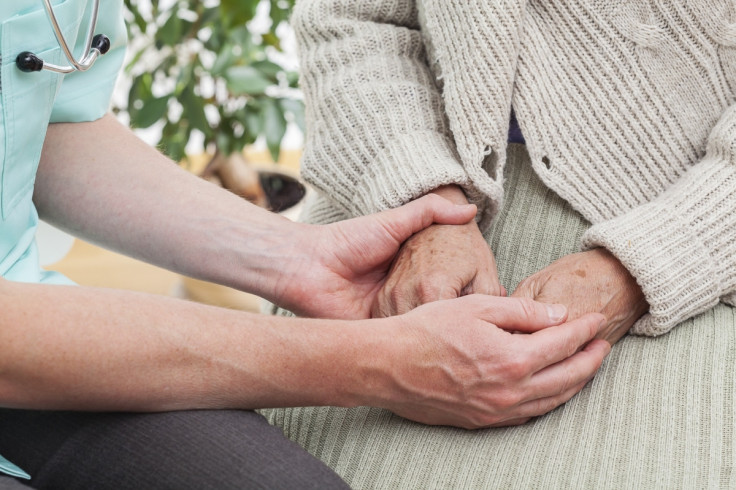Assisted dying bill: The arguments for and against explained

The assisted dying bill will get its second reading in the House of Commons tomorrow (11 September) and if passed, will give terminally ill patients the right to die. One of the most controversial piece of legislation ever proposed, some argue the decision is a straightforward humanitarian issue – a question of granting those suffering the freedom to end their own life. Others view assisted dying as a moral dilemma with implications for the medical profession and the ageing population of the UK.
Ahead of the vote on Friday, here are some of the key arguments for and against assisted dying.
Arguments for
The ethical argument states a terminally ill, mentally competent adult should be able to exert their own free will and after meeting strict legal safeguards, ought to be able to take a prescribed medication which would end their own life. Supporters of the ethical argument suggest people should have the freedom of choice, including the right to control their body and life, as long as they do not affect the rights of others.
The concept of "quality of life" is an important aspect of this argument. For example, if a terminally ill person is living in intolerable pain or their quality of life is severely diminished, the supporters of assisted dying may suggest they should have the right to die.
Dignity in Dying, an organisation campaigning to legalise assisted dying with upfront safeguards for terminally ill, mentally competent adults, states on its website: "Without a change in the law, dying people will suffer against their wishes at the end of life and will continue to make decisions without the advice of medical or social care professionals. We believe that high-quality end-of-life care should be complemented by the choice of an assisted death for terminally ill, mentally competent adults who meet strict safeguards and feel their suffering has become unbearable."
Some – but not all – medical professionals have argued that forcing people to travel abroad to end their own lives in distressing circumstances is inconsistent with patient-centred care. Another argument posed by supporters is that assisted dying would not affect medical practices negatively, but provide safeguards to a practice already being carried out.
Proponents of assisted dying may argue that dying people who want to control the manner and timing of their death are not suicidal – which goes against the argument that assisted dying amounts to suicide or euthanasia.
Supporters of approving Friday's bill often cite the US state of Oregon, where assisted dying has been legal since 1997, say there have been no cases of abuse of the law and no widening of its initial scope. Assisted deaths in Oregon account for 0.3% of total deaths, according to the Oregon Health Authority Oregon's Death with Dignity Act (2014) and Washington State Department of Health Death with Dignity Act Report (2014).
What is the assisted dying bill?
The bill, tabled by MP for Wolverhampton South West Rob Marris, would allow doctors to prescribe a lethal dose to terminally ill patients judged to have six months or less to live who request the right to die.
A patient would have an assessment to make sure they had formed a "clear and settled intention" to end their life and their decision would need approval from two doctors and a high court judge. Under the legislation, the drugs would have to be self-administered.
Arguments against
One of the arguments frequently posed against assisted dying is that advances in palliative care could reduce the chances of a terminally ill person feeling like they are suffering intolerably. Proponents of this argument may suggest that if a person is given the right care in the correct environment, there should be no reason why they are unable to have a dignified, natural death.
Another argument posed ahead of the bill states that the vulnerable elderly may see themselves as a burden on their family or society so may feel encouraged to end their lives. It has been suggested that approving the assisted dying bill may encourage some to die if they believe they are a burden on others.
Some critics of assisted dying suggest approving Friday's bill could set a dangerous precedent for euthanasia – a so-called "slippery slope" to widening rules on euthanasia and assisted suicide. It has been argued that assisted suicide could be akin to asking medical professionals to abandon their obligation to preserve human life and, as a result, damage doctor-patient relationships.
Occasionally, doctors may be mistaken about a person's diagnosis and outlook, and the person may choose assisted suicide after being wrongly told that they have a terminal condition. Critics say the safeguards outlined in the bill are not enough to protect against unnecessary deaths.
Kevin Yuill, spokesperson for No To Assisted Suicide and author of Assisted Suicide: The Liberal, Humanist Case Against Legalisation, told IBTimes UK: "The truth is that the whole issue here is suicide. I am opposed to this bill because I don't think we should be in the business of yelling "jump" at someone atop of a high building. Nor do I think we should offer to give a push.
"The understandable fears and anxieties of people who have been given a terminal prognosis are not best dealt with by helping to kill them. Instead, we should increase the availability of hospice care."
© Copyright IBTimes 2024. All rights reserved.






